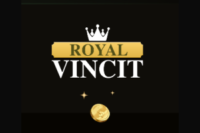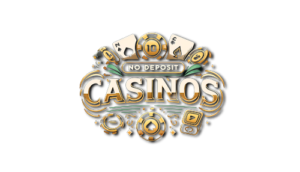Online gambling offers entertainment and the possibility of financial gain, but it also carries risks, especially for vulnerable players. Gambling addiction is a serious issue that can lead to financial hardship, strained relationships, job loss, and emotional distress. This article aims to highlight measures for player protection in online casinos and provide practical advice for those who want to quit gambling.
| Rank | Casino | Bonus | Rating | Visit |
|---|---|---|---|---|
| 1 |

|
🎁€1000 + 300 FS | VisitReview | |
| 2 |

|
🎁€10 Free or 15 FS | VisitReview | |
| 3 |

|
🎁€500 or 5 BTC + 200 FS | VisitReview | |
| 4 |

|
🎁€10 Free or 15 FS | VisitReview | |
| 5 |

|
🎁€10 Free or 15 FS | VisitReview | |
| 6 |

|
🎁€10 Free or 15 FS | VisitReview | |
| 7 |

|
🎁 €500 | VisitReview | |
| 8 |

|
🎁€10 No Deposit | VisitReview | |
| 9 |

|
🎁15 FS No Deposit | VisitReview | |
| 10 |

|
🎁€150 + 225 FS | VisitReview |
How Online Casinos Protect Players
Reputable online casinos implement various measures to ensure the safety and well-being of their players. These measures include:
- Self-Exclusion Programs
Many online casinos offer self-exclusion tools that allow players to block themselves from accessing gambling platforms for a specified period. This can range from weeks to several years, providing a break for those who feel their gambling is out of control.
- Deposit and Loss Limits
Responsible casinos allow players to set daily, weekly, or monthly deposit limits. This helps users control their spending and prevents them from chasing losses—a common habit among problem gamblers.
- Age Verification
Strict age verification procedures ensure that minors are not able to access gambling platforms. By requiring identity verification, online casinos help protect younger audiences from developing gambling habits prematurely.
- Reality Checks
Features like reality checks remind players of their gaming duration and spending during a session. These notifications can encourage players to take breaks and reconsider their behavior if they’re spending excessive time or money.
- Educational Resources
Most reputable gambling platforms include dedicated sections with advice about responsible gambling, tools for self-assessment, and links to organizations that specialize in gambling addiction support.
Signs You Might Have a Gambling Problem
Acknowledging the signs of problem gambling is the first step to overcoming it. Here are common indicators:
- Difficulty Stopping
Recreational gamblers can easily set limits on their time and bets. Problem gamblers, however, find it difficult to stop, with gambling becoming a central focus of their lives.
- Gambling Beyond Your Means
Using money meant for bills, savings, or other essential expenses to gamble is a red flag. Borrowing money to continue gambling is another alarming sign.
- Chasing Losses
Trying to win back losses by betting more often leads to greater financial trouble. This behavior is a hallmark of gambling addiction.
- Prioritizing Gambling
When gambling takes precedence over work, family, and other responsibilities, it’s a clear indication of a problem. Skipping important events or neglecting relationships for gambling highlights its harmful impact.
- Experiencing Negative Emotions
Addicted gamblers often feel guilt, frustration, or despair. The highs of winning are temporary, while losses can lead to long-term emotional and psychological distress.
Tips for Quitting Gambling
Quitting gambling is challenging but achievable with the right approach. Here are practical steps:
- Admit the Problem
The first step is recognizing and admitting that gambling has become an issue. Self-awareness is key to seeking help and making positive changes.
- Build a Support Network
Share your struggle with trusted friends or family members. You don’t have to face this alone. Support groups, such as Gamblers Anonymous, can connect you with others who share similar experiences.
- Avoid Triggers
Stay away from casinos, online gambling sites, and other environments that may tempt you to gamble. Blocking gambling websites or using specialized software can be helpful.
- Set Financial Safeguards
Hand over financial control to a trusted person to limit access to money. This can prevent impulsive gambling.
- Replace Gambling with Positive Activities
Find hobbies or activities to fill the void left by gambling. Options include sports, art, volunteering, or learning a new skill—anything that provides fulfillment and keeps your mind engaged.
- Seek Professional Help
Therapists and counselors specializing in addiction can provide tools and strategies to help you overcome your gambling problem. Cognitive Behavioral Therapy (CBT) is particularly effective for changing destructive patterns of thought and behavior.
Resources for Help
If you or someone you know struggles with gambling addiction, contact organizations like:
- Gamblers Anonymous: A global support network for problem gamblers.
- BeGambleAware: Offers free resources and advice.
- National Helplines: Many countries have hotlines that provide immediate assistance.
Player protection in online casinos is essential, but personal responsibility and self-awareness are equally important.
Recognizing the signs of addiction, taking preventive measures, and seeking help are crucial steps in reclaiming control over your life. By fostering a safe gambling environment and providing resources for help, the industry can support players while ensuring their well-being.
